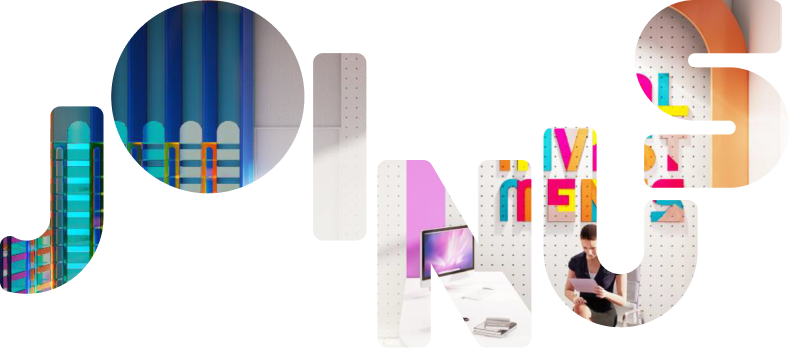Financial Considerations for Startups: Taxes
Understanding Dutch taxes and financial rules is essential for any entrepreneur building a business in the Netherlands. Here’s what you need to know to stay compliant—and competitive.

The Netherlands is offering exceptional opportunities due to its economy, government support, access to the European market, global business networks and hubs for the entrepreneurs, company owners and freelancers. For the businesses there are many different financial topics to consider to become a successful one. Understanding the Dutch financial landscape includes taxes, business structures, funding options, and payroll responsibilities etc. This guide covers everything you need to know about the financial aspects of starting a business in the Netherlands.
The Details of the Dutch Taxation
Navigating Dutch taxes is crucial for startups to ensure compliance and maximize financial performance.
1. Corporate Income Tax (Vennootschapsbelasting - CIT)
Current Rates (2025): For 2025, the rates are:
19% for taxable profits up to €200,000 (the SME rate).
25.8% for taxable profits exceeding €200,000 (the standard rate).
2. VAT (Omzetbelasting / BTW)
Standard Rate: 21%. This applies to most goods and services.
Reduced Rate: 9%. This rate applies to a limited range of goods and services deemed essential, such as:
Food and drinks (excluding alcoholic beverages)
Medicines
Books and e-books
Hairdresser services
Certain cultural services (e.g., museum visits, theater performances, sports events - note: a proposed increase to 21% for culture, media, and sports was rejected for 2025, so it remains at 9%).
Important update for 2025: The VAT rate will increase from 9% to 21% for the supply of certain agricultural goods (e.g., non-food grains and legumes, seed potatoes, feathered livestock, animal feed).
Zero Rate (0%): Primarily applies to:
Intra-Community supplies (goods or services supplied to businesses in other EU countries).
Exports of goods outside the EU.
Certain international transport services.
3. Payroll Taxes (Loonheffingen)
This is a collective term that includes wage tax (loonbelasting) and national insurance contributions (premies volksverzekeringen). Employers are responsible for withholding these from employee salaries and remitting them to the Dutch Tax Authorities.
Wage Tax: A progressive income tax on employment income. The brackets and rates for 2025 have been adjusted. For instance, the first bracket (up to €38,441) has a combined rate of 35.82% (wage tax + national insurance contributions).
National Insurance Contributions: These fund social security benefits like state pension (AOW), survivor benefits (ANW), and long-term care (WLZ). There are annual maximums on the income subject to these contributions.
Employee Insurance Contributions (Werknemersverzekeringen): These are primarily employer contributions, covering unemployment insurance (WW), sickness benefits (ZW), and occupational disability insurance (WIA).
Income-Related Healthcare Insurance Contribution (Zvw-premie): This is paid by the employer (or sometimes directly by the individual if self-employed). The percentage for 2025 for employers is 6.51% (normal) or 5.26% (reduced) on income up to a maximum contribution wage (€75,864 in 2025).
Customary Wage (Gebruikelijk Loon): For director-major shareholders (DGA) of a Dutch BV (someone who owns at least 5% of the shares and works for the company), there's a "customary wage" rule. The DGA must receive a salary that is considered "customary" for the work performed, typically at least the highest of:
The salary of the most comparable employment.
The highest-earning employee in the BV or affiliated company.
A statutory minimum (e.g., €56,000 for 2024, likely similar for 2025). This ensures that profits are not solely distributed as lower-taxed dividends, but also taxed as employment income.
Tax Incentives and Startup Benefits
The Netherlands is widely recognized for its supportive environment for startups and innovation, offering a range of tax benefits and incentives designed to encourage research, development, and business growth.
1. Innovation Box (Patent Box) Scheme:
This is one of the most significant tax incentives for innovative companies. It allows companies to pay a reduced corporate tax rate of 9% (instead of the standard corporate tax rates of 19% or 25.8%).
2. WBSO (R&D Tax Credit/Wage Tax Credit):
The WBSO scheme provides compensation for a portion of the wage costs and other expenses related to research and development activities. It functions as a reduction in wage tax to be paid on the salaries of employees engaged in R&D. For startups, the benefit can be as high as 50% of the first €380,000 of R&D costs (in 2025).
3. Starter's Deduction (Startersaftrek) and Other Entrepreneur Allowances:
For individual entrepreneurs (sole proprietorships), the "startersaftrek" provides an extra deduction of €2,123 on top of the self-employed deduction. This can be claimed up to three times within the first five years of being an entrepreneur.
4. 30% Ruling for Highly Skilled Migrants:
This is a crucial incentive for attracting international talent. It allows employers to offer 30% of an employee's gross salary tax-free for a certain period, significantly reducing the taxable income for highly skilled foreign employees who relocate to the Netherlands.
Build your Startup in the Netherlands
Starting a business in the Netherlands is more than just incorporating a company. A deep understanding of tax laws and opportunities is critical for financial success. Whether you’re navigating tax benefits or opening a business account, getting local guidance can make all the difference. Reach out to a Dutch startup consultant or financial advisor to set your business on the path to success.
The Unusual Space is a well-known facilitator which helps innovators and startups in the Netherlands with all the necessary processes for legal, law, finance and networking. A dynamic, international collective of experts with over a decade of experience helping startups, entrepreneurs, and innovators turn bold ideas into thriving realities.



